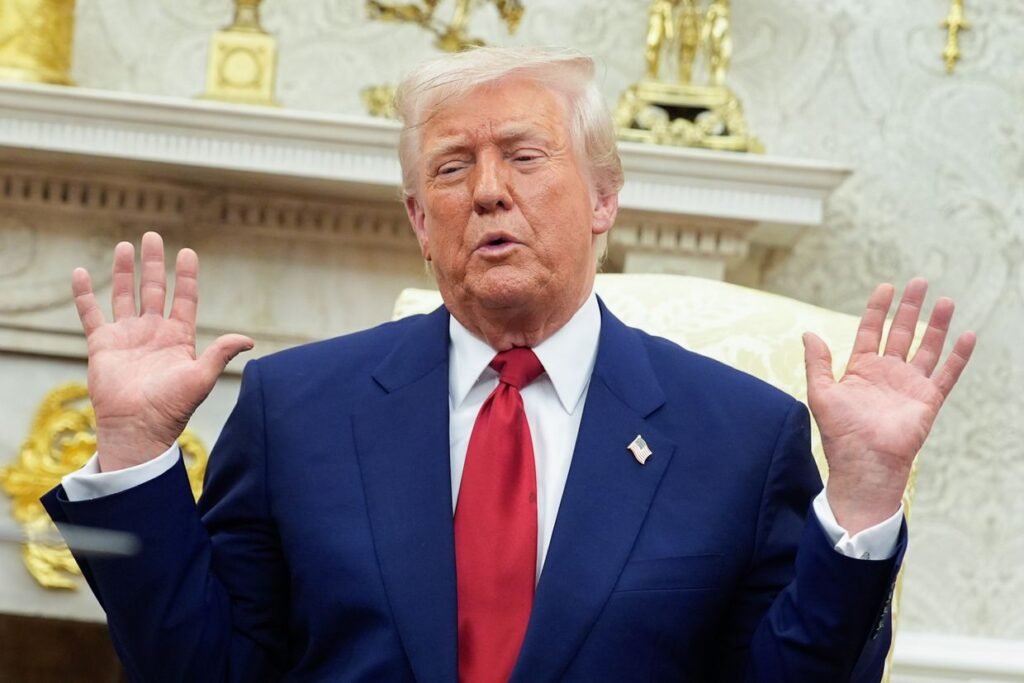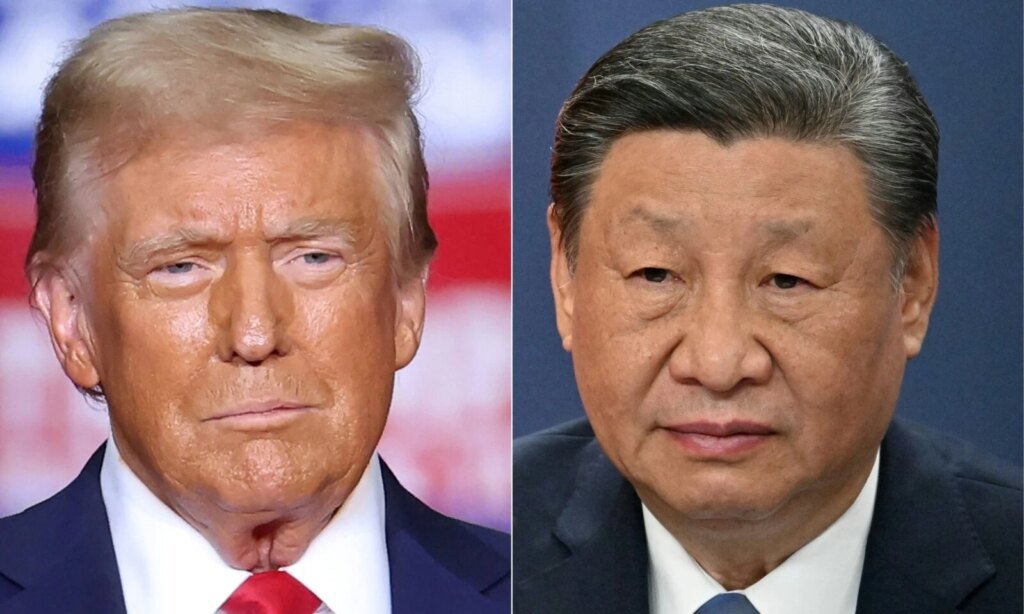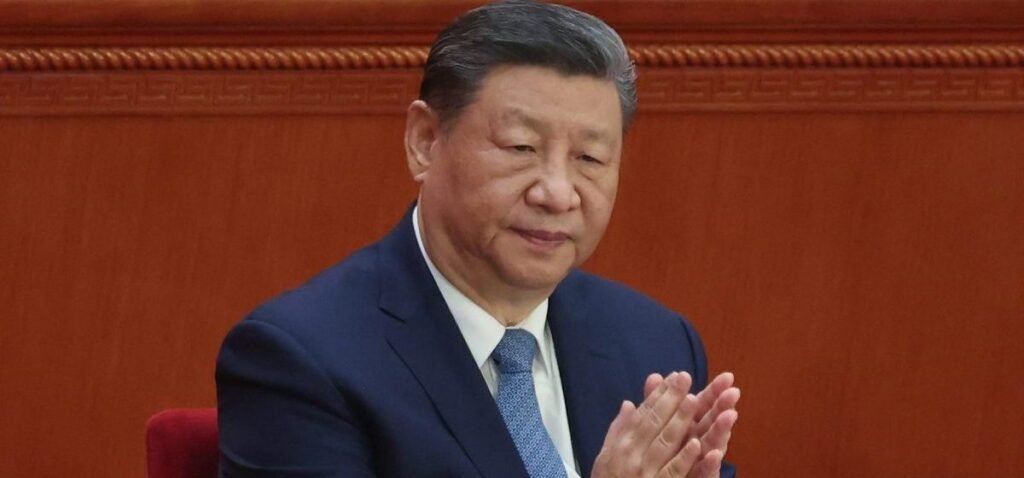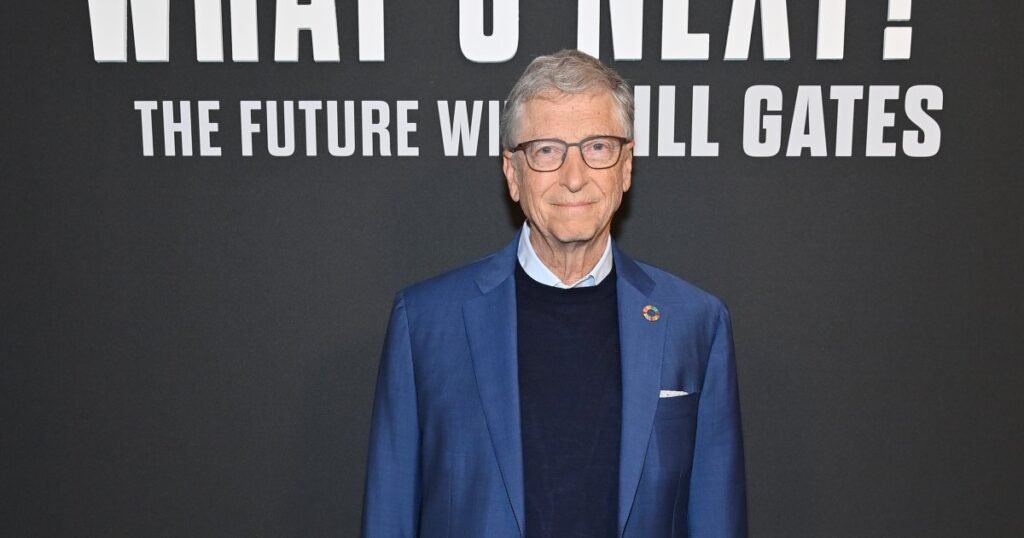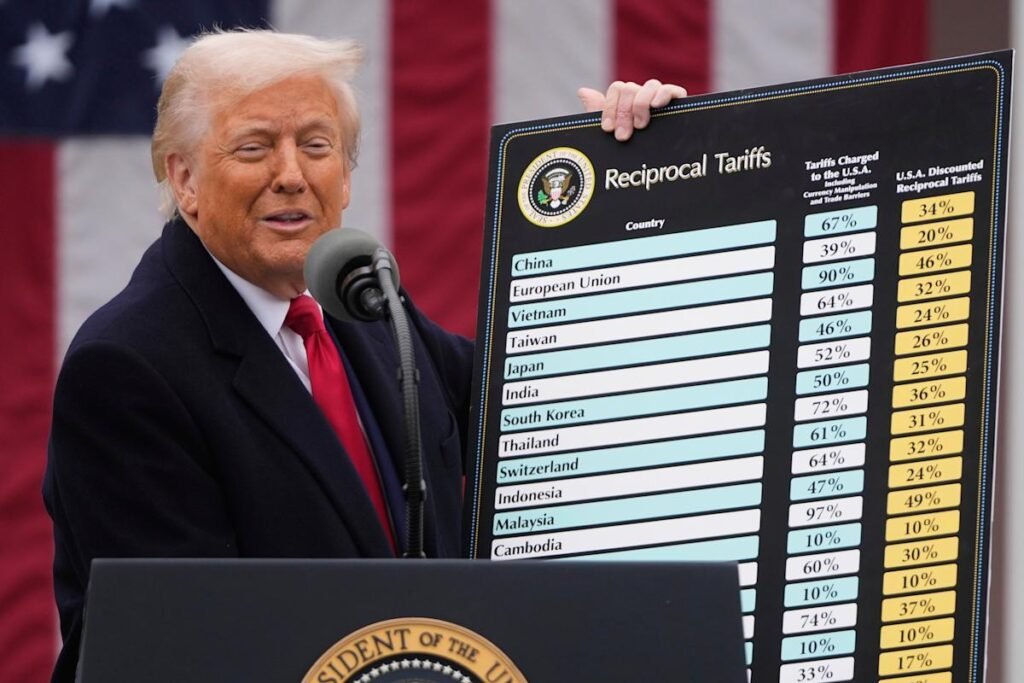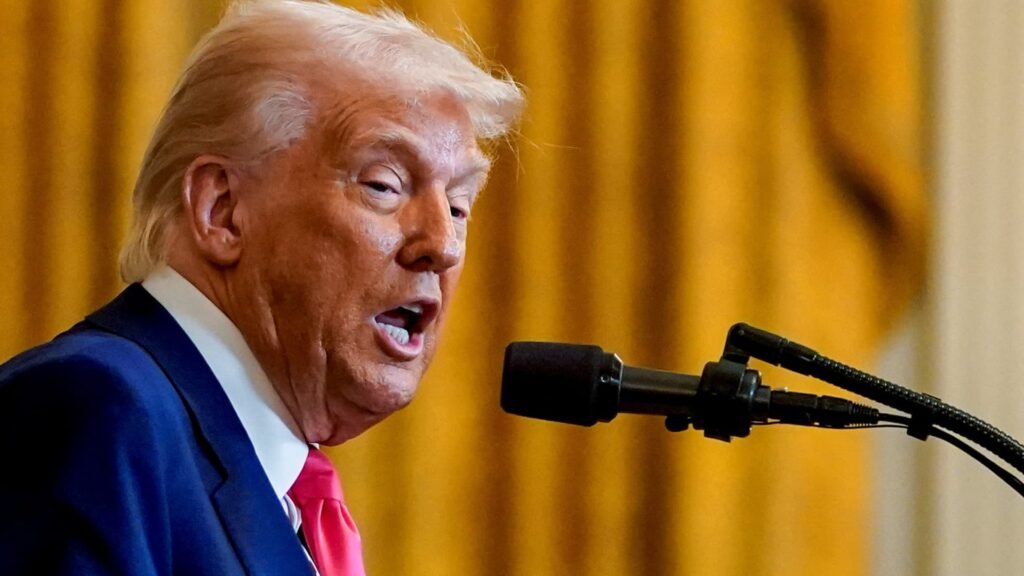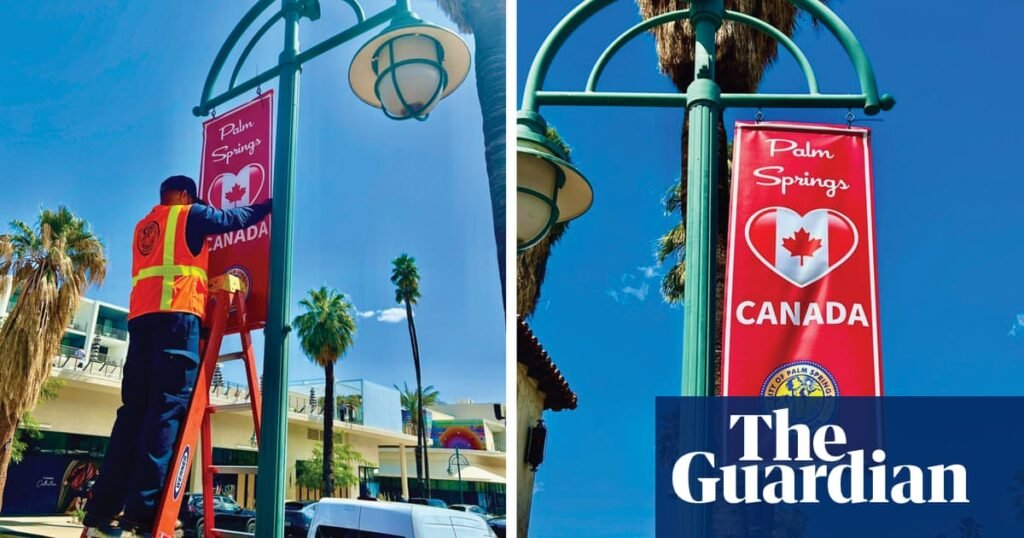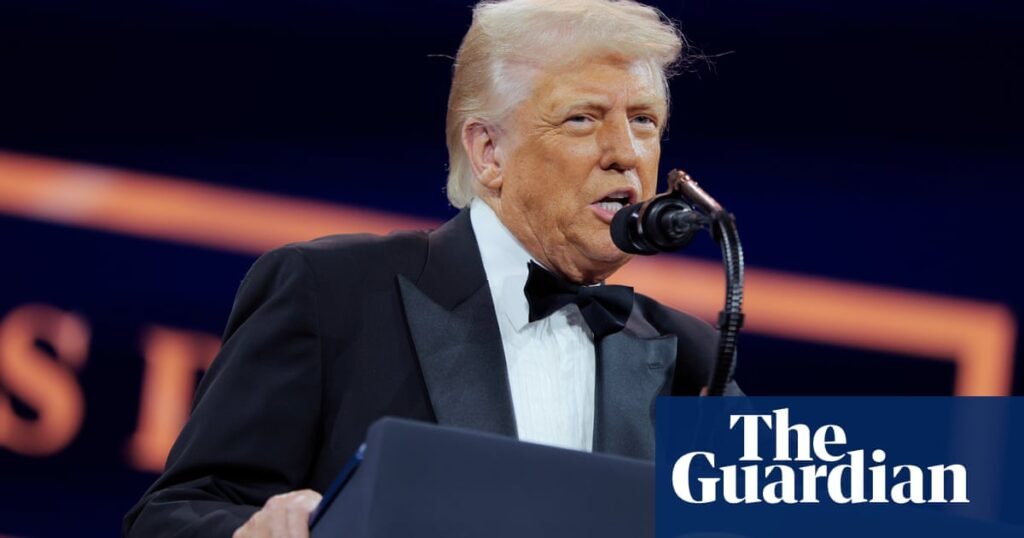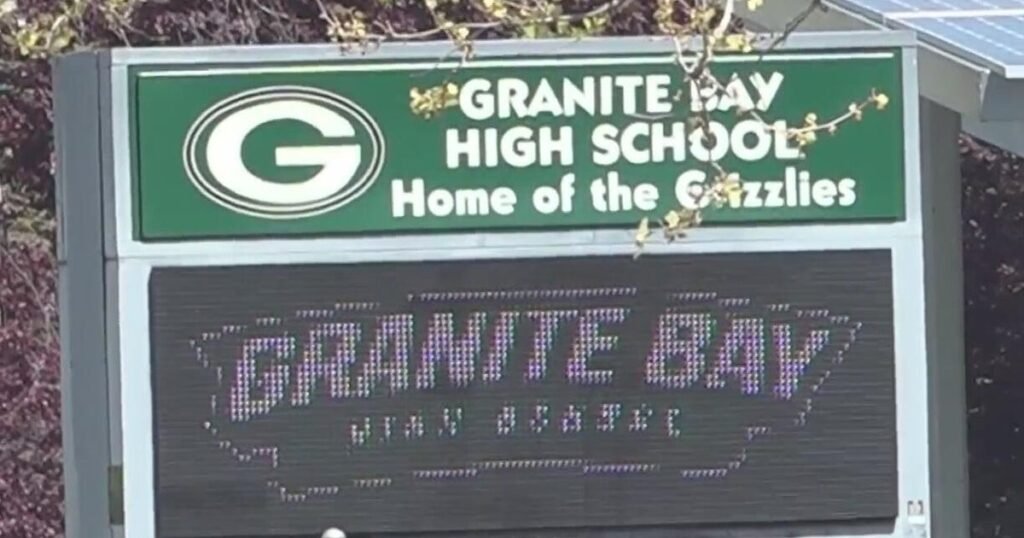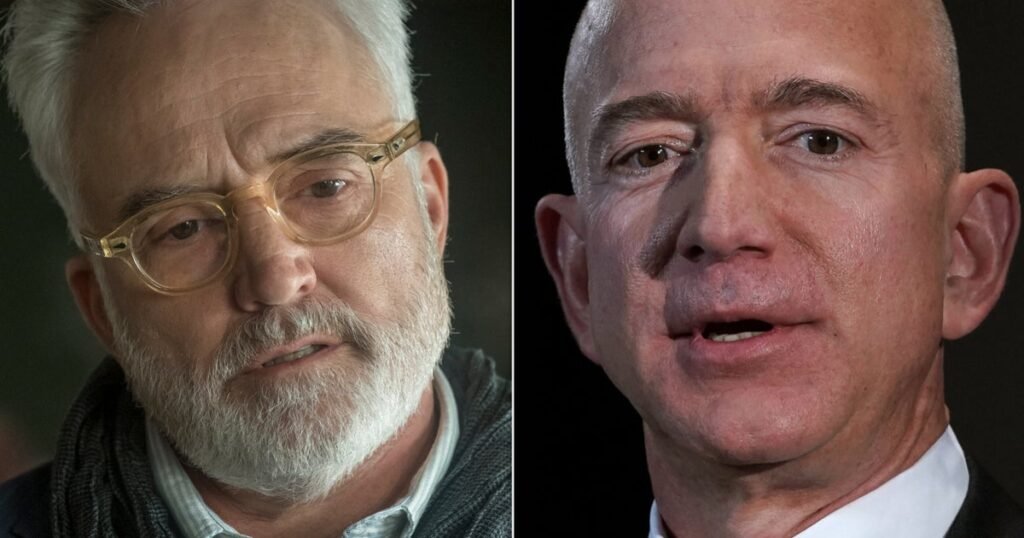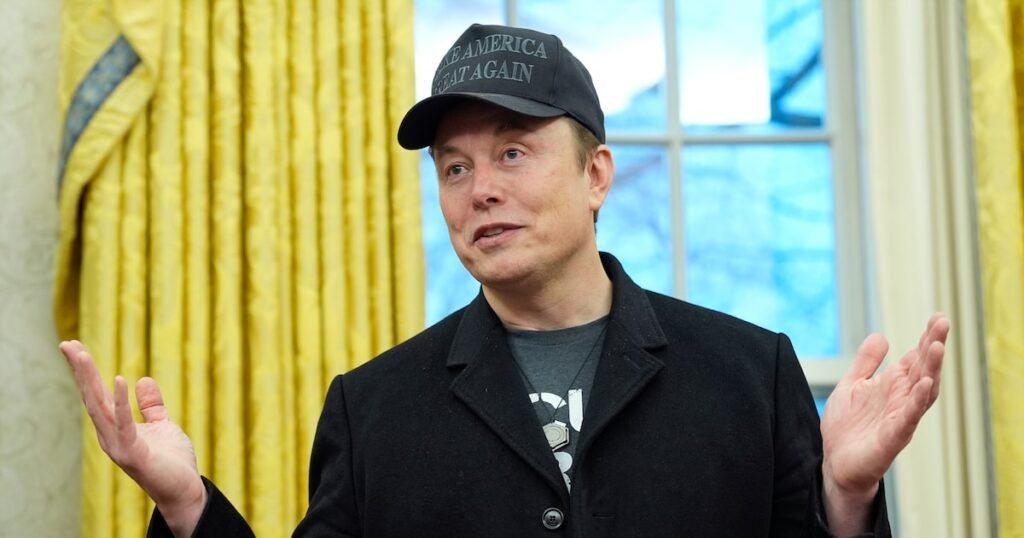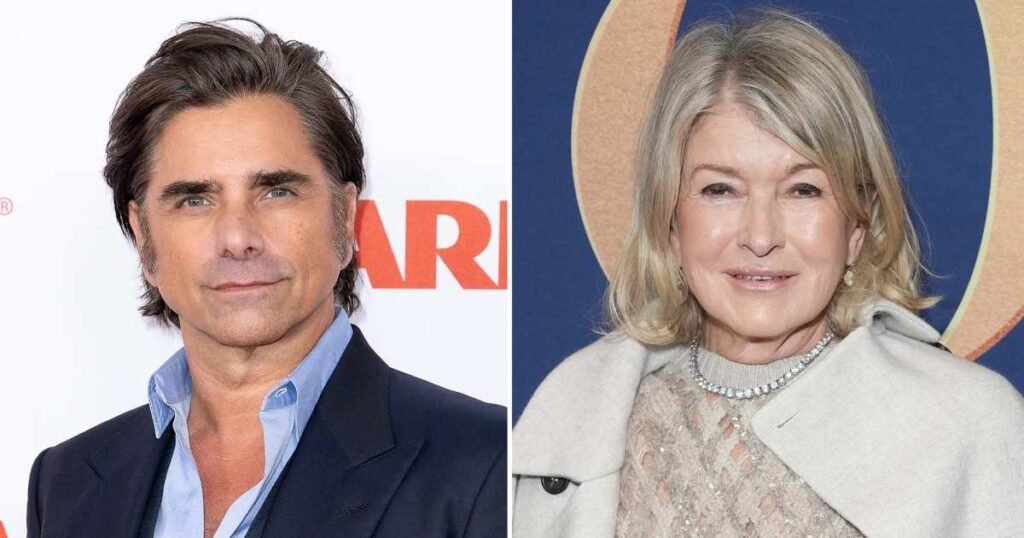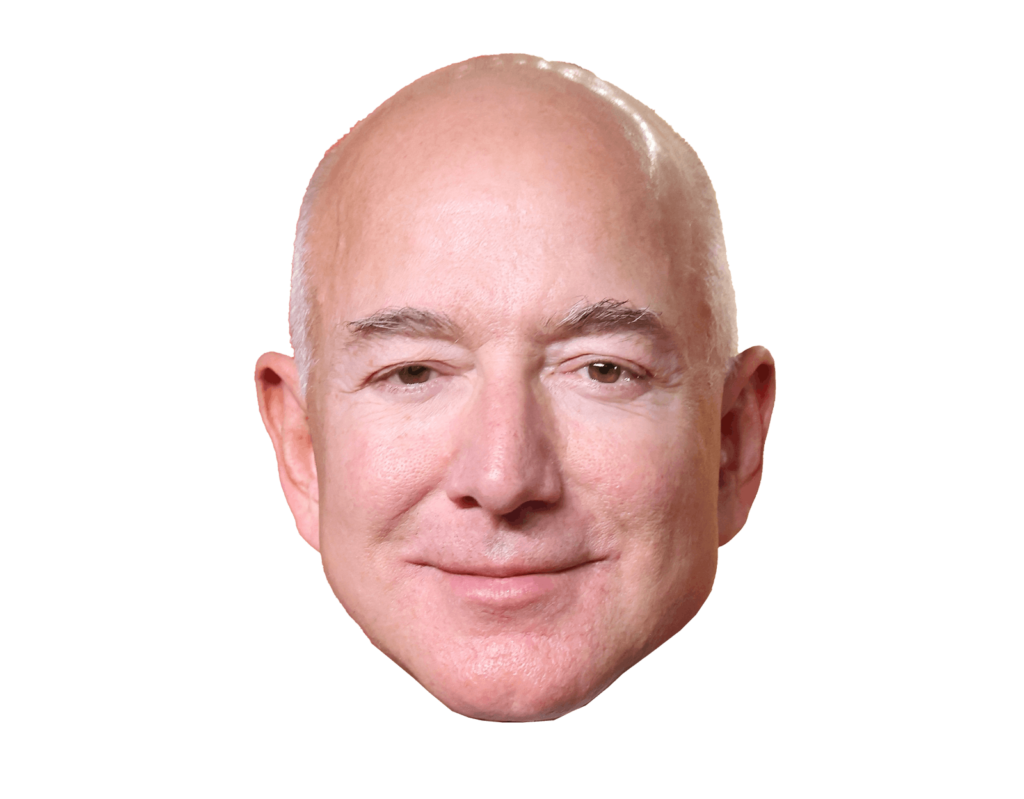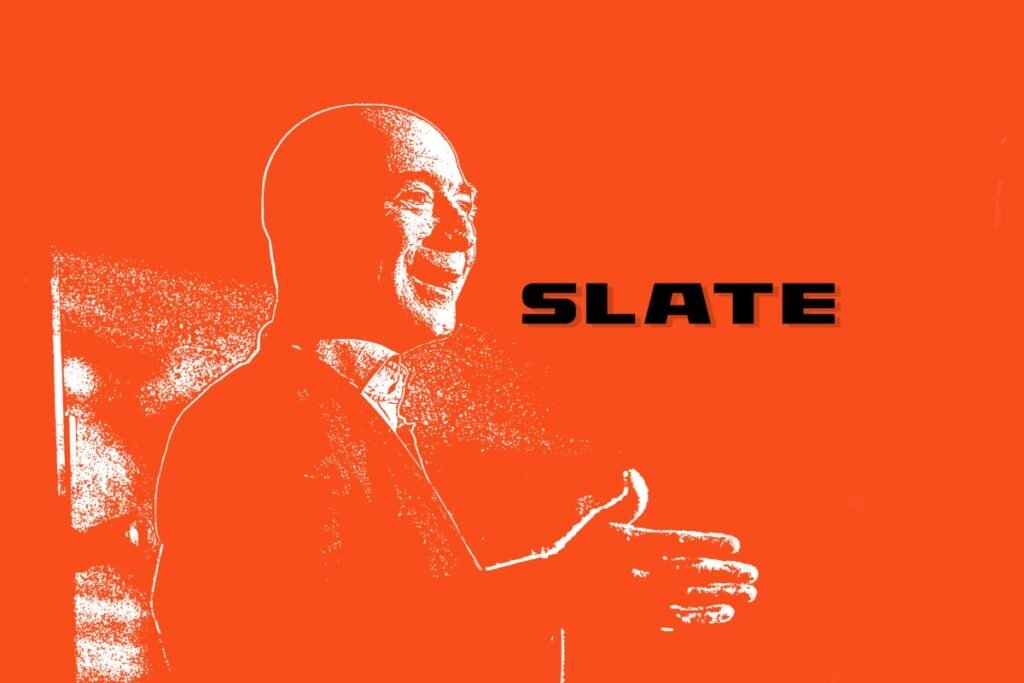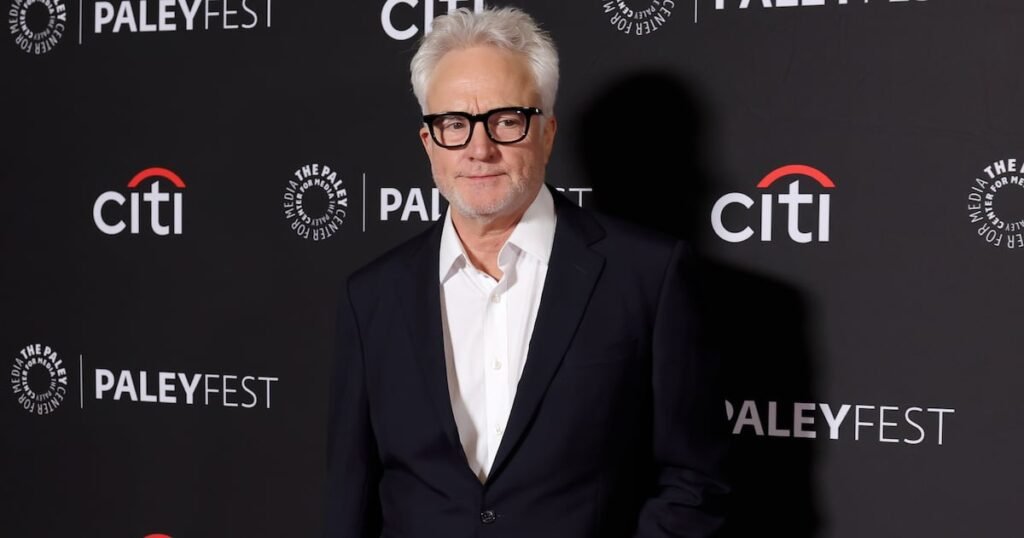Microsoft founder Bill Gates reflects upon a 50-year-old computer code that reshaped technology

Updated: 12:48 AM EDT Apr 4, 2025
Let’s talk about your letter out today, your annual letter, your 11th I believe with you and your wife. What is your goal for this letter? Why should people read it? Well, Melinda and I uh get to travel around, uh, we get to Africa *** lot, we get to meet with *** lot of great scientists and, uh, see things that really surprise us, uh, *** lot of things that are going well, uh, you know, people don’t hear often enough about the progress and, uh, certain issues or things that, uh, uh, seem to us to be big challenges that people may not see. So once *** year we sit down this year we picked. Uh, 9 things that had surprised us and we thought, uh, others should, should hear from us on, and I want to go through some of those, but first of all, if you were to take this letter as *** whole, is it *** call to action? Is it sounding the alarm? What is it? Well, the Uh, in several areas, uh, you know, like the complexity of climate change that it’s not just, uh, electricity, it is saying, uh, that people should step back and not think it’s going to be simple to solve, uh, some like, you know, talking about Africa, it’s OK, Africa is important and. It is *** bit different and we shouldn’t lose sight of what’s going on there is we have all these domestic uh issues uh that uh take most of our attention so it it’s designed to um have us really sit back and reflect uh and then share the things we get to see that we think other people might benefit from or just find fascinating. You know, *** lot of it’s very positive because uh many of the things we’re doing are, are making progress and uh people ought to know that. Let’s talk about *** few of the things in your letter. I was struck in the very first paragraph. You talk about the record number of women running for office and I immediately thought back to last week’s State of the Union and there was that iconic shot of the freshmen congresswomen all in white, some raising their hands and cheering. What did you think when you saw that? Well, I think it’s fantastic, uh, that more women are, are coming into politics, you know, they’re definitely, you know, demo democracy is supposed to be self correcting, so if it gets too far, you know, in one direction, then you know it’s supposed to come back at times it feels like, will it, uh, you know, take complex issues like health care or education and solve those, but here. You know, bringing women into office, uh, uh, with their sensibilities about uh how women haven’t had equal opportunities that seems like, uh, the, the system working properly. Another item uh that you talk about sticking with the uh the Washington theme here. You say quote we consider global engagement our patriotic duty. There is nothing about putting your country first that requires turning your back on the rest of the world. If anything, the opposite is true. It sounds in some ways as *** direct rebuke of President Trump’s worldview. Well, we certainly disagree. With the president’s recommendation that foreign aid be cut substantially. Up to 30% he had suggested exactly so fortunately the Congress in *** very bipartisan way, uh, did not agree with that and they maintained these aid levels, uh, it’s less than 1% of the budget, but our view is that even if you ignore the humanitarian benefit of, uh, literally over 20 million people are alive because of the HIV medicines, the, the US government. Make sure made available even if you put that aside that having uh stability in Africa so we’re not involved in wars there and there’s not huge migration having decent health systems so that they can catch epidemics before they spread and and get to the entire world there are benefits it’s not just that some elite people are uh you know thinking that. You know there should be some diversion of money. It really is in *** hardheaded sense, even if you’re just caring about, uh, the United States, uh, that less than 1% is is smart to spend. Do you feel as though President Trump isn’t taking enough of *** globalist view? Well, uh, I think the US has built alliances that have reduced the chance of war and, you know, created win-win situations including. Uh, trade and people, uh, moving around and. Not just President Trump, but some other, uh, you know, populist leaders are saying no, let’s draw inward and Poland, Hungary, yes, so I, you know, my view is there should be *** counter narrative. That says that uh you know our relationship with Germany and Japan and the trade we do with them that is *** huge part of our strength uh and you know whether it’s our values or helping out other countries uh there there’s *** case uh for how that really benefits us it’s not just *** uh an elite viewpoint. Another, uh, thing that you mentioned here I want to ask you about. We are doing this interview in New York City and you write that the world will build an entire New York City every month for 40 years and you use that as *** case to uh ask for near zero emissions. Is that realistic? It’s gonna be very hard, uh, to meet our climate goals and part of the reason is that, uh, it’s not just the two areas people think about the most. It’s not just electricity, that’s about *** quarter of it. It’s not just passenger cars. You’ve got, you know, trucks and buses and trains and boats and planes. You’ve got all the materials we make like steel. It’s about 7% of all emissions. Cement is about 6%. Cows, uh, for meat and milk is about 5%. And so the breadth of innovation to get to be able to build those cities which are going to be needed uh and yet not to have uh emissions uh it’s not just renewable energy it’s *** whole host of things uh and so you know the sooner we we see that then we’ll invest in the. The research, the breakthrough ideas, uh, that, uh, give us *** chance of getting close uh to the, the very ambitious targets. One of the buzzwords on Capitol Hill is *** Green New Deal. Do you support that? I’m very supportive of the increased discussion of climate change is *** big issue, uh. I worry that if people think it’s easy to solve that you know you can solve it in 10 years or that it’s just the US uh taking action uh solves the problem that that won’t get us where we want to go, but, uh, I applaud that this is being talked about *** lot more. Uh, and you know politicians have been saying, are you really saying we should ignore this now coming together with *** solution that really is realistic, uh, you know, how, uh, uh, we innovate in *** way that can help the rest of the world get there. Uh, that’s still, still necessary. Let’s talk about some learning topics here. Um, you call in this letter to speed up innovation in digital learning tools. How do you see the future 5 to 10 years from now in the classroom? Well, the amazing thing is that we are finally, uh, moving away from the textbook as this, uh, you know, heavy thing you carry around to where when kids are doing problems at night they can ask for hints, uh, they can get immediate feedback about whether they’ve gotten the concept. The teacher will see the next morning who engaged, how much they needed the hints, uh, who didn’t come on at all, uh, and so it’s, it’s. Taking less of the teacher’s time, uh, the students are, uh, seeing what’s necessary, uh, very quickly, and the teacher can break them up into groups and concentrate on the kids who need it, so the combination of this, uh, you know, future replacement of the textbook, uh, and the teacher that is just emerging, uh, and so hopefully finally we’ll see technology really. Improving learning levels which as yet has been *** bit of *** disappointment. Sticking with youth, you’re talking about the promise of DNA, not just to catch serial killers and solve crimes, but also to help prevent premature birth. Talk about that please. Well, what’s amazing is we worked with 23andMe to look at the genetics of women who had not had premature birth and the women who had. And we saw that there was *** *** set of genes uh that have to do with processing *** mineral called selenium uh that made *** huge difference in your risk of premature birth and we realized there are lots of women around the world who don’t get enough of this selenium and so we’ve got trials out uh that are very promising. That that loan will help bring down those uh premature births. It’s 10% of all births. It hasn’t been well understood, including why certain groups like African women have significantly higher rates and now we have *** lot of biological tools, uh, that both for the US and for these developing countries, uh, we need very cheap interventions like selenium. Uh, that will, will dramatically reduce the problem, you know, sir, when I read through your letter, uh, forgive me, but it almost sounds like *** platform, and I read in the news these days about all these billionaires, uh, who are considering running for president, Howard Schultz, former CEO of Starbucks, Michael Bloomberg, former mayor of New York, and I have to ask you, do you have any designs on the presidency or you think of. Thinking of running for office? Not at all. Uh, we even have some non-billionaires that are thinking of running. Uh, so, you know, I love my job at the foundation working, uh, with my wife Melinda. Uh, this is the work I’m gonna do the rest of my life. We’re making you call philosophy your second career, uh, 3, yeah, so Microsoft, I loved that, uh, and that gave me the resources, uh, together with Warren Buffett’s generosity because he. Uh, he’s given *** lot of his wealth, uh, to the, the, the foundation that Melinda and I are, are running. So that’s all I’m gonna do. I spent time with politicians, so, you know, when they’re interested in the, the narrow set of topics that I’ve really spent time on and dug into like. Climate change or some of these health issues, uh, of course I’m going to be engaged, but not as somebody who’s running for office myself, not for 2020, not forever. Uh, you’ve called philanthropy your second career. Why do you call it that? Is it that important? Well, I, I love the work. Uh, I choose to travel *** lot and, uh, you know, meet, uh. Intensely, uh, so that I can get my mind around, you know, why is HIV been so hard to solve? Why don’t we have *** vaccine yet? Which scientists should we get more resources to. And we will solve that even though it’s been tougher than was expected. Uh, polio eradication, we’re very close and so I’m always talking to the people in Pakistan, Afghanistan, which is the only country we’ve never gotten down to zero cases, uh, so I’m, I’m getting to learn. I get to see the impact of these things, uh, even in areas that are complex, uh, so. Um, you know, I’m, I’m, it’s amazing to have that opportunity and to get to do it with my wife. One of the issues of the day, uh, Apple’s Tim Cook has weighed in on this. He’s called for privacy legislation in Congress for tech companies so that consumers have more control over their data. Do you support Tim Cook’s call for legislation on on privacy and data? Yeah, the, uh, Europe passed *** thing called the GDPR and then California uh has something very similar and so. You know, there definitely will be legislation even when you have California alone, you know, tech companies aren’t gonna have one version of that product uh for non-california or non-Europe. So, uh, you know, some rules are definitely being laid down. um, do you believe they’re needed? Oh, certainly. Technology because it’s so successful, uh, it has become the way you get your news, the way you get advertising and so understanding just like other advances like TV where you know there are rules about what you could broadcast or you know equal time, those sorts of things we’re facing. Uh, some similar and some novel issues, uh, because the, the digital realm is just so pervasive and how, uh, we learn things and yes, the, the politicians are gonna have to take *** few of the negative things like, OK, political. Uh, speech, you know, from foreigners or or not from foreigners, how should we think about, uh, political advertising in this digital world? Sir, we really appreciate your time. I’m getting the wrap, so I think we’ll have to call it *** day, but thank you so much for giving Hearst Television an interview. Great to talk to you. Thank you, sir. Pleasure.
Microsoft founder Bill Gates reflects upon a 50-year-old computer code that reshaped technology

Updated: 12:48 AM EDT Apr 4, 2025
Even as he grows older, Microsoft founder Bill Gates still fondly remembers the catalytic computer code he wrote 50 years ago that opened up a new frontier in technology.Although the code that Gates printed out on a teletype machine may look crude compared to what’s powering today’s artificial intelligence platforms, it played a critical role in creating Microsoft in April 1975 — a golden anniversary that the Redmond, Washington, company will celebrate on Friday.Gates, 69, set the stage for that jubilee with a blog post reminiscing on how he and his old high school friend — the late Paul Allen — scrambled to create the world’s first “software factory” after reading an article in the January 1975 issue of Popular Electronics magazine about the Altair 8800, a minicomputer that would be powered by a tiny chip made by the then-obscure technology company, Intel.The article inspired Gates, who was just a freshman at Harvard University, and Allen to call Altair’s maker, Micro Instrumentation and Telemetry Systems, and promise the company’s CEO Ed Roberts they had developed software that would enable consumers to control the hardware. There was just one hitch: Gates and Allen hadn’t yet come up with the code they promised Roberts. Gates and Allen tackled the challenge by latching onto the BASIC computer language that had been developed in 1964 at Dartmouth College, but they still had to figure out a way to make the technology compatible with the forthcoming Altair computer, even though they didn’t even have a prototype of the machine.Video below: Bill Gates talks data privacy, presidential ambitions and his foundationAfter spending two months working on the program with little sleep, Gates finished the code that became the basis for the Altair’s first operating system. “That code remains the coolest I’ve ever written,” Gates wrote in his blog post, which includes an option to download the original program.The code would go on to provide the foundation for a business that would make personal computers a household staple, with a suite of software that include the Word, Excel and PowerPoint programs, as well as the Windows operating system that still powers most PCs today.”That was the revolution,” Gates said of the code in a video accompanying his post. “That was the thing that ushered in personal computing.”Gates’ recollection of the code is part of a nostalgic kick that he has been on this year as he prepares to turn 70 in October.The trip down memory lane included the February release of a memoir exploring his early years as an often-misunderstood child with few friends, and a hailing of the 25th anniversary of the philanthropic foundation he created after stepping down as Microsoft’s CEO in 2000. The tech giant initially stumbled after Gates’ departure but has been thriving under CEO Satya Nadella, and has amassed a market value of about $2.8 trillion.In his memoir, Gates also reflected on his tempestuous relationship with fellow PC pioneer, the late Apple co-founder Steve Jobs, whose company will be celebrating its golden anniversary next year.”Fifty years is a long time,” said Gates, whose personal fortune is estimated at $108 billion. “It’s crazy that the dream came true.”
Even as he grows older, Microsoft founder Bill Gates still fondly remembers the catalytic computer code he wrote 50 years ago that opened up a new frontier in technology.
Although the code that Gates printed out on a teletype machine may look crude compared to what’s powering today’s artificial intelligence platforms, it played a critical role in creating Microsoft in April 1975 — a golden anniversary that the Redmond, Washington, company will celebrate on Friday.
Gates, 69, set the stage for that jubilee with a blog post reminiscing on how he and his old high school friend — the late Paul Allen — scrambled to create the world’s first “software factory” after reading an article in the January 1975 issue of Popular Electronics magazine about the Altair 8800, a minicomputer that would be powered by a tiny chip made by the then-obscure technology company, Intel.
The article inspired Gates, who was just a freshman at Harvard University, and Allen to call Altair’s maker, Micro Instrumentation and Telemetry Systems, and promise the company’s CEO Ed Roberts they had developed software that would enable consumers to control the hardware. There was just one hitch: Gates and Allen hadn’t yet come up with the code they promised Roberts.
Gates and Allen tackled the challenge by latching onto the BASIC computer language that had been developed in 1964 at Dartmouth College, but they still had to figure out a way to make the technology compatible with the forthcoming Altair computer, even though they didn’t even have a prototype of the machine.
Video below: Bill Gates talks data privacy, presidential ambitions and his foundation
After spending two months working on the program with little sleep, Gates finished the code that became the basis for the Altair’s first operating system. “That code remains the coolest I’ve ever written,” Gates wrote in his blog post, which includes an option to download the original program.
The code would go on to provide the foundation for a business that would make personal computers a household staple, with a suite of software that include the Word, Excel and PowerPoint programs, as well as the Windows operating system that still powers most PCs today.
“That was the revolution,” Gates said of the code in a video accompanying his post. “That was the thing that ushered in personal computing.”
Gates’ recollection of the code is part of a nostalgic kick that he has been on this year as he prepares to turn 70 in October.
The trip down memory lane included the February release of a memoir exploring his early years as an often-misunderstood child with few friends, and a hailing of the 25th anniversary of the philanthropic foundation he created after stepping down as Microsoft’s CEO in 2000. The tech giant initially stumbled after Gates’ departure but has been thriving under CEO Satya Nadella, and has amassed a market value of about $2.8 trillion.
In his memoir, Gates also reflected on his tempestuous relationship with fellow PC pioneer, the late Apple co-founder Steve Jobs, whose company will be celebrating its golden anniversary next year.
“Fifty years is a long time,” said Gates, whose personal fortune is estimated at $108 billion. “It’s crazy that the dream came true.”




